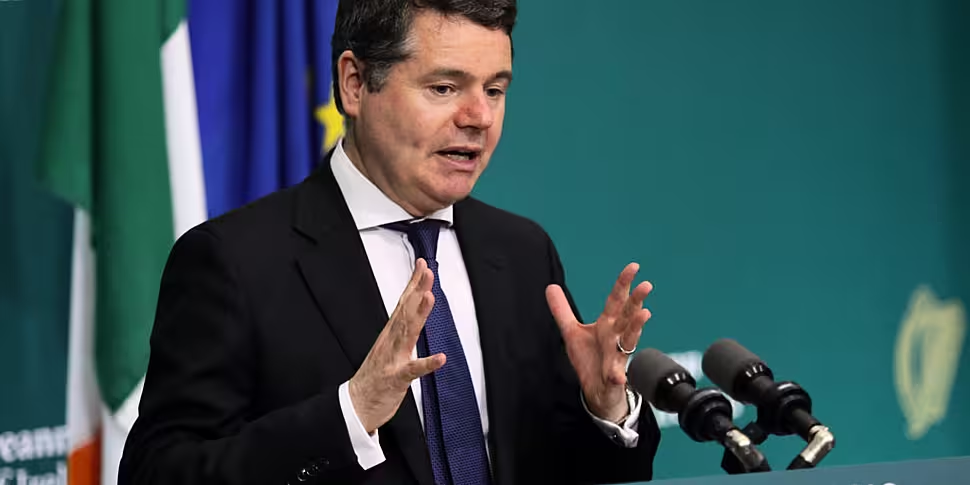The Finance Minister has said the EU is better prepared for the economic consequences of COVID-19 than it was for the financial crash.
It comes after European Union finance ministers agreed a €500bn rescue package for economies affected by the coronavirus pandemic.
It was agreed after opposition from Germany and the Netherlands saw a marathon negotiation end in failure earlier this week.
On The Pat Kenny Show Finance Minister Paschal Donohoe said the package will go towards the EUs overall efforts to help Governments put social supports and wage subsidy schemes in place.
“For example, this week, Ireland borrowed €6bn to help us continue to pay for what we are doing now and for what I think we will need to do in the future,” he said.
“We borrowed that with an interest rate of a quarter of 1%,” he said.
“There are two reason we were able to do it. The first and bigger reason is because of how Ireland is now viewed as country to lend to as result of everything that has happened in our country in recent years.
“The second reason is the work of the European Central Bank in the background supporting the functioning of debt markets while Governments are borrowing this kind of money.”
"This is a huge fund. The trillion euro commitment that the ECB have given is a commitment given far earlier than in the past... the scale of that commitment is far bigger than in the past as well" says @Paschald on EU plan #PKNT
— Pat Kenny Newstalk (@PatKennyNT) April 10, 2020
He said the deal marked a “Good Friday” for the EU and said member states showed “real creativity in trying to come up with new ways of finding supports for all countries but bigger help for countries who could get into great difficulty.”
He said the supports mean members are now “in a very different place to where we were a decade ago when the EU grappled with its last economic crisis.”
Minister Donohoe said the new package, combined with the work of the European Central Bank means the supports are worth more than €1tn.
He said the new deal is comprised of three packages – one to support countries, one to support companies and one to support workers.
The European Central Bank has committed €1tn to the response, while the European Stability Mechanism is offering a €500bn fund for short-term lending to countries that need assistance with healthcare-related costs for COVID-19.
He said the interest rate on the short-term loans has yet to be set but will be “lower than many countries would be able to borrow at if this crisis really intensified.”









